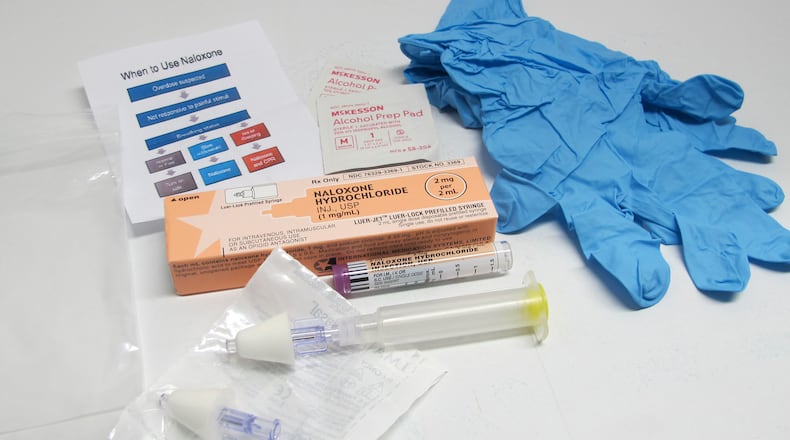RELATED: Big data being used in the opiate epidemic battle
Butler County Coroner Dr. Lisa Mannix, the Health Department and mental health and addictions board had hoped to have the alert system up and running by mid-summer. Health Commissioner Jenni Bailer said they have hit a bit of a snag. They have access to data from the coroner and emergency rooms but are still working on EMS runs. Being able to access all three is critical.
“Those are three indicators of something going on that’s not good for the people in the community,” Bailer said. “The three individually are not as powerful as when they intersect and we see all three of them going up at the same point in time, then we know there’s something hot going on and there may be some bad drugs on the streets.”
Bailer said there is not just one central EMS database in the county, there are five dispatch centers — the sheriff’s, Fairfield, Middletown, Monroe and West Chester Twp. — that have the information.
RELATED: Middletown opiate crisis: 11 staggering numbers for 2017
Middletown Fire Chief Paul Lolli said the problem is, because of HIPPA patient privacy laws, they cannot just allow access by others to its database.
“We’re trying to figure out a way that we could get them the information as quickly as possible,” Lolli said. “It’s all in the planning stages because we’re not sure how we would be able to do that.”
Monroe Fire Chief John Centers agreed any information they provide must be HIPPA compliant, but he said the premise behind the data search is laudable. The notification is not just about keeping citizens safe, it is also a tool so first responders and hospitals can be prepared.
West Chester Fire Chief Rick Prinz said his department tracks calls where Narcan has been administered, so he can provide that data to the notification effort.
“We already do a lot of internal tracking as far as overdose related calls are concerned and calls that we use Narcan on,” Prinz said. “So we can certainly provide that data to add to that conversation, to help them get the results they are looking for. We can do that without violating any HIPPA policies, it’s just numbers.”
Bailer said they are not interested in any personal information about addicts and they plan to use a model they have found at another jurisdiction that involves coding calls.
Hamilton County’s health department has been sending out notifications for a while and Kelly Firesheets with Interact for Health said they glean their EMS data from dispatch centers.
Maj. Mike Craft with the Butler County Sheriff’s Office said calls into the dispatch center — the county dispatches for about 53 percent of the county — would be pretty unreliable information. He said, for example, if a call comes in for someone having difficulty breathing it could actually be a suicide, the dispatchers have no way of knowing the circumstances from where they sit.
“We can’t track it, it would be impossible to track,” Craft said. “But we do support it… We definitely support this endeavor and if there’s anything we can provide, something that would assist, we’d do it in a minute.”
RELATED: Passed-out addicts show up in Butler County restrooms and parking lots
Fairfield Police Chief Mike Dickey echoed Craft’s concerns and added that oftentimes it is a third party dialing 911 and unless drug paraphernalia accompanies the body, they won’t know what the ailment is.
“You don’t know what the cause is until the fire department gets there and sometimes they don’t know,” he said. “If a guy’s got narcotics paraphernalia there and he shoots up and passes out, then it becomes pretty obvious. But there’s times when the person is down and out and you don’t know what the cause is.”
Craft said the best information is going to come from medical people like the coroner and hospitals. Scott Rasmus, executive director of the mental health and addiction board, said that is what they are hoping to get from EMS records.
“You’ve got to get down to the EMT personnel that go out,” Rasmus said. “The EMT’s records are probably the most relevant, pertinent. That’s another piece (of the plan) integrating appropriate staff.”
Bailer said there will be meeting with the chiefs within the next couple weeks to discuss how they can access the information.
About the Author
